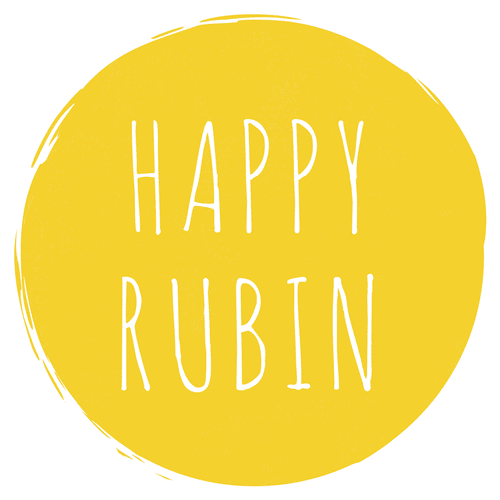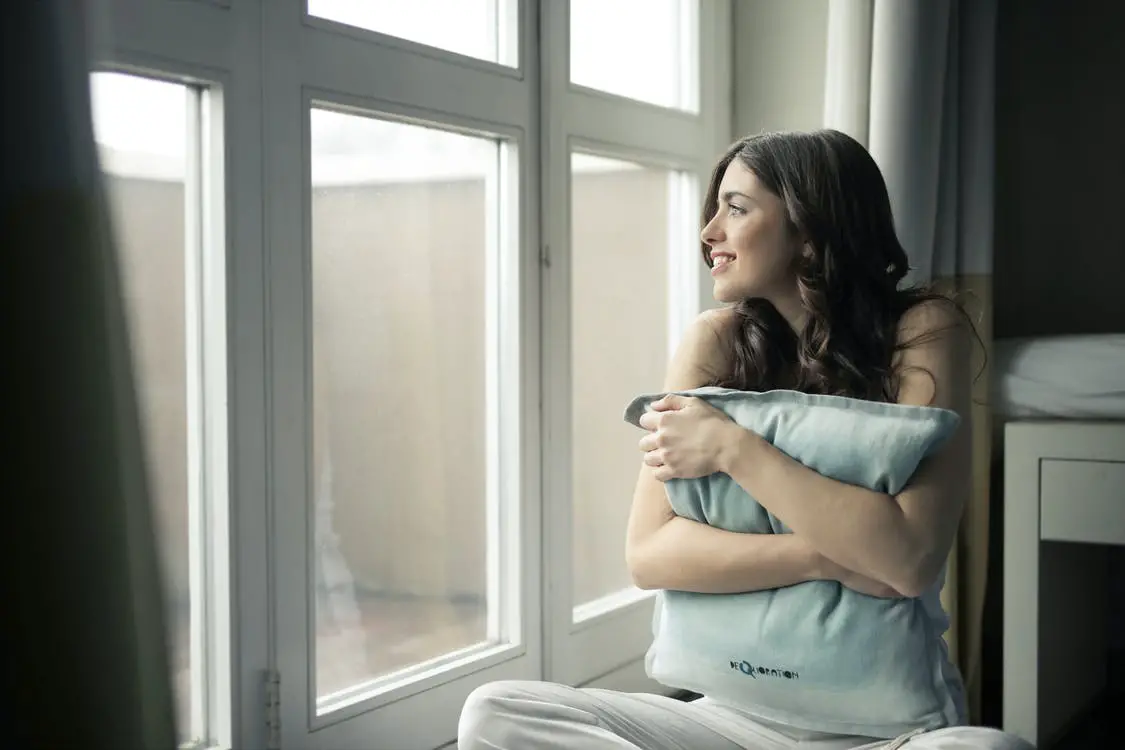![How To Deal With Sensory Overload [9 Tips For Overstimulation]](https://happyrubin.com/wp-content/uploads/2019/12/ik-ben-overprikkeld-150x150.jpg)
Jung Personality Test: All About These Types [+Quick Test]
![Jung Personality Test: All About These Types [+Quick Test]](https://happyrubin.com/wp-content/uploads/2017/11/mbti-persoonlijkheidstypen.jpeg)
In this overview of the Jung personality test you will find a complete overview of the MBTI profiles. You will also find a quick test to recognize all MBTI types .
Contents of this page:
What can you do with the Jung Personality Test?
Its official name is the Myers-Briggs Type Indicator (MBTI). The personality types form the four basic meta programs . With this you can quickly understand someone’s way of thinking, doing and feeling so that you can then respond to it.
All the features of the Jung profiles

External Behavior: Extrovert – Introvert
Where does a person focus their attention?
Characteristics of Extrovert
- Focused on the outside world.
- Focused on other people.
- Likes to be with others.
- Wonders how others react to his input.
- Many areas of interest.
- Many acquaintances.
- Focused on interaction.
- Can multitask.
- Social behaviour.
- Loves action.
- Impulsive.
- Great adaptability.
- Focuses on the outer world of people and things.
- Is a good seller. Shakes hands with people and immediately says, “Hi! Are you ready to buy today? ‘
Come work with us, you will work with a huge team, full of social people!
Characteristics of Introvert
- Focused on the inner world of ideas and impressions.
- Enjoys being alone.
- Is concerned with all kinds of thoughts and ideas about the world in which he lives.
- Reasons from his own frame of reference.
- Needs its own ‘space’.
- Can feel lonely in a group.
- In-depth, qualitative relationships (instead of quantitative).
- Likes to work alone.
- Likes to look for solutions himself.
- Focuses on the inner world of ideas and impressions.
Come and work with us! We have wonderful workplaces where you can do your thing all by yourself without being disturbed. There are also places to relax during the breaks.
Internal processes: Sensory – Intuitive
How does a person collect information?
Characteristics of Sensory
- Someone who is sensing likes a logical explanation.
- Likes to substantiate.
- Want to know how!
- Specific, details, small chunk, metamodel person.
- Focused on concrete facts in the here and now.
- Focuses on concrete information from the five senses.
- Realistic and down to earth.
- Intuitors find ‘dreamers’.
- Difficulty with planning ahead.
- Preferably sees immediate results.
- Need for order.
- Interested in concrete, factual, realistic, concrete and practical applications.
- “I don’t think that intuitor wants to talk to me.”
We are going to open Photoshop, download five images on Pexels.com, come up with a text and finally we put everything together to make a nice brochure!
Characteristics of Intuitive
- An intuitive person looks at his own values.
- Abstract, broad outlines, milton model person.
- Pay attention to possibilities, relationships in the future (patterns) and meanings (instead of facts).
- Easily strays from the present, daydreams and simply loses sight of the current situation.
- Current experiences serve as inspiration for future possibilities.
- Positive about changes and new patterns
- Sees new possibilities.
- Seeks creative solutions in complex situations.
- “Those sensory people are just nagging you with all those questions from them.”
We are going to make a communication! With this we are going to communicate nicely outside! (What is meant is making a brochure.)
Internal state: Thinker – Feeler
How does a person make decisions?
Characteristics of Thinker
- Makes mainly rational assessments, using objective criteria.
- Loves objective analyzes of repeatable cause-and-effect effects: the scientific method.
- Believes in principles, visions and rules.
- Does not wonder what the reaction of others are to the thinker’s point of view.
- Logic is an important guideline.
- Is dissociated: puts the feeling outside.
- Is comfortable in a business environment.
- Theoretical orientation.
- Learns best from lectures.
- Autonomous.
- Loves order.
- Likes to achieve goals and has great stamina.
{Scientific source} says this will lead to 20% more efficiency. What do you think?
Characteristics of Feeler
- Makes decisions on personal and subjective grounds.
- Acts from its values.
- Hardly focused on logic: emotions are the drivers.
- Associated.
- Focused on the past and present.
- Social and spiritual attitude
- Nourishing
- Compassionate
I know efficiency is important to you. Does it feel good to implement this?
Adjustment Response: Judger – Perceiver
How does a person deal with the outside world?
Characteristics of Judger
- Organizes and plans his own life. Wants to be settled.
- Makes his own decisions.
- Want to have everything well organized.
- Detailed planner.
- Check.
- Something must be completely completed (closure). If someone gives a presentation and says, “There are 4 points I am going to share,” and then only lists 3, the Reviewer will say, “Hey wait, what’s point 4?”
- Decisive.
- Administrative skills.
- ‘Left Brain’.
- Tru time ( see timeline therapy ).
- If you want to sell something to an assessor, you say: ‘Mr van der Ven, there is always a correct and incorrect way to do it. And the correct way to purchase {product} is: {now explain to third person}. Step 1 is: the customer determines what his desired outcome is. Step 2 is: the coach makes a proposal for the client. Step 3 is: the customer accepts the proposal and makes the investment. Step 4 is: you can start to feel good about having made the right purchase. ‘ Step 4 may again be associated in the you-form (ambiguity). The last step to persuade the Reviewer is to say, “We’ve done steps 1, 2.” Now maintain your silence tolerance. The Assessor cannot resist also completing step 3. Optionally add the sentence: ‘ Now it is time to take step 3. ‘ And then stick to the silence tolerance again.
Let’s stick to the plan and do this step by step.
Characteristics of Perceiver
- Let life come its way.
- Flexible and spontaneous.
- Can adapt to his circumstances.
- Likes ‘open ends’ fine. In fact, he wants to keep his options open.
- Don’t have to finish things like books.
- Don’t have to make a decision.
- Acts impulsively.
- Can multitask.
- Need for changes.
- Is autonomous.
- ‘Right Brain’
- In time (timeline therapy)
Let’s improvise and come up with a new unique way!
The sensory introverts:

ISTJ
- Quiet.
- Serious.
- Thoroughly.
- Practical.
- Realistic.
- Responsible.
- Don’t get distracted.
- Traditions and loyalty are important.
- Enjoys staying orderly and organized.
ISFJ
- Quiet.
- Friendly.
- Responsible.
- Conscientious.
- Thoroughly.
- Accurate.
- Loyal.
- Attentive. Remembers important things about people that are important to him / her.
- Is concerned about how others feel.
- Creates harmony at work and at home.
ISTP
- Tolerant and flexible.
- Finds solutions proactively.
- Analyzes and fixes the root of problems.
- Interested in cause-and-effect facts.
ISFP
- Quiet.
- Friendly.
- Sensitive.
- Enjoy the here and now and what is happening around him / her.
- Would like his / her own space and time frame.
- Loyal and committed to his / her own values and important people around him.
- Preferably avoids conflicts.
- Does not force his / her opinions and values on others.
The intuitive introverts

INFJ
- Want to understand what motivates people and understand people.
- Conscientious and true to his / her values.
- Has a clear vision of how he / she can contribute to the bigger picture.
- Organized and determined in implementing his / her vision.
INTJ
- Is original and has great ideas for achieving his / her goals.
- Quickly sees patterns in external events and also sees their long-term effects.
- Push on.
- Skeptical.
- Independent.
- Has high standards that competencies and performance must meet – for himself and others.
INFP
- Idealistic.
- Loyal to own values and to other people who are important to him / her.
- Curious.
- Quickly sees opportunities.
- Seeks to understand and help people reach their potential.
- Flexible and accepting unless a value is under threat.
INTP
- Wants to develop logical explanations for anything that seems interesting.
- Theoretically.
- Abstract.
- More interested in ideas than social interaction.
- Quiet.
- Withheld.
- Flexible.
- Can focus well.
- Skeptical, sometimes critical.
- Always analytical.
The sensory extroverts:

IS P
- Flexible and tolerant.
- Pragmatic approach.
- Focused on immediate results.
- Focused on the here and now.
- Spontaneous.
- Enjoy every moment when he / she can be active with others.
- Learn best by doing.
ESFP
- Social and friendly.
- Accepterend.
- Epicurean.
- Loves people.
- Loves to work together.
- Brings pragmatism and realistic approach to work.
- Flexible. Easily adapts to the environment and others.
- Learns best by testing a skill with other people.
ESTJ
- Practical.
- Realistic.
- Absolutely just.
- Implement decisions quickly.
- Put people and projects in the right place to get things done.
- Systematically follows his standards and wants others to do the same.
- Decisive in implementing his / her plans.
ESFJ
- Warm and cordial.
- Conscientious.
- Co-operative.
- Wants harmony in the environment and is determined to achieve it.
- Likes to work with others to complete tasks accurately and on time.
- Loyal, does what he / she would do, even in the smallest things.
- Attentive: notices what others need and tries to provide it.
- Want to be appreciated.
The intuitive extroverts

ENFP
- Warm.
- Enthusiastic.
- Imaginative.
- See life full of possibilities.
- Want a lot of confirmation from others.
- Gives a lot of appreciation and support.
- Spontaneous.
- Flexible.
- Can improvise well.
- Verbal fluent.
ENTP
- Fast.
- Ingenious.
- Alert.
- Outspoken.
- Can solve problems well.
- Can analyze concepts strategically.
- Can read other people well.
- Bored with routines, rarely wants to do things the same way.
- Alternates different interests at lightning speed.
ENFJ
- Warm.
- Empathetic.
- Responsive.
- Responsible.
- Strongly attuned to the emotions, needs and motivations of others.
- Finds potential in everyone and wants to help others fulfill their potential.
- Loyal.
- Social.
- Facilitates and offers inspiring leadership.
ENTJ
- Fair.
- Decisive.
- Likes to take on his / her leadership role.
- Quickly sees illogical and inefficient procedures and develops systems to solve this.
- Loves long-term planning and goal setting.
- Knowledgeable and well-informed.
- Loves to gather information and pass it on to others.
- Powerful in presenting his / her ideas.
The Jung personalities in the perspective of the structure of subjective perception
You can place the Jung parts in the structure of the subjective experience:
- Internal processes: intuitive or sensory
- External behavior: introverted or extroverted
- Internal state: thinking or feeling
- Context: assessor or observer
A quick test of the Jung personality types

A really quick way to find out a person’s basic meta programs is to ask the questions below:
- When it’s time to recharge your battery, do you want to:
a) Prefer to be alone? Introvert
b) Being with other people or a specific person? Extrovert - When you start a study or work project, you are mainly focused on:
a) Estimating the ideas and applications in the future? Intuitive
b) To delve into the current facts and the meaning in the present? Sensory - When you make a decision or make a choice, what do you mainly let yourself be guided by?
a) By logical facts and deliberate / well thought-out reasoning. Thinking
b) By instinctual / emotional judgments and personal values. To feel - If you work with someone on a project, what do you prefer?
a) Planning according to a concrete and ordered structure based on fixed agreements. Assessor
b) Global guidelines with flexible space depending on developments. Observer
Extensive Jung personality types test
Click here to do an extensive test of 123-test.
This was the clearest possible introduction to the Jung types.

![5 Best Self Care Tips For College Students [#1 Advice]](https://happyrubin.com/wp-content/uploads/2021/09/the-best-self-care-tips-for-college-students-440x264.jpg)
![How To Stick To New Year’s Resolutions: 9 Tips [Smart & Sure Ways]](https://happyrubin.com/wp-content/uploads/2019/12/tips-voor-goede-voornemens-440x264.jpg)
![How To Stop Being So Hard On Yourself [9 Great Tips]](https://happyrubin.com/wp-content/uploads/2019/12/we-moeten-zoveel-van-onszelf-en-anderen-150x150.jpg)

![19 Best Ice Breaker & Get-To-Know-Eachother Games [Fun & Simple]](https://happyrubin.com/wp-content/uploads/2018/02/leukste-ijsbrekers.jpeg)
![Becoming More Social: 41 Tips [Improving Social Skills] [List]](https://happyrubin.com/wp-content/uploads/2018/06/sociale-vaardigheden1.jpeg)
![How to start a conversation with anyone: 15 tips [Making contact]](https://happyrubin.com/wp-content/uploads/2017/08/gesprekstechnieken1.jpeg)
![372 Friend Tag Q&A Questions [Best Friend Quiz]](https://happyrubin.com/wp-content/uploads/2019/05/best-friend-tag-vragen-voorbeelden.jpg)



![Clingy & controlling behavior of partner/date [Extreme examples]](https://happyrubin.com/wp-content/uploads/2020/06/claimerig-gedrag-van-partner-eigenschappen-en-voorbeelden-150x150.jpg)

![How to recognize if a man is in love [Signals & his body language]](https://happyrubin.com/wp-content/uploads/2020/05/verliefd-gedrag-van-mannen-herkennen-150x150.jpg)


![Free will and religion / theology [Verses & Quotes on free will]](https://happyrubin.com/wp-content/uploads/2020/10/religion-on-free-will-quotes-1050x640-1-150x150.jpg)

![Dealing With Setbacks & Hardship [Lessons & Examples]](https://happyrubin.com/wp-content/uploads/2018/11/omgaan-met-tegenslag-tips-hoe-dan.jpeg)
![NLP Agreement Frame: Use these exact sentences [Examples]](https://happyrubin.com/wp-content/uploads/2020/10/agreement-frame-nlp-1125x640-1-440x264.jpeg)
![122 Best Comebacks In Any Situation [Best Examples]](https://happyrubin.com/wp-content/uploads/2020/06/beste-comebacks-technieken-tips-440x264.jpg)
![Using Hypnosis to Stop Smoking [HowTo]](https://happyrubin.com/wp-content/uploads/2020/05/stoppen-met-roken-door-hypnose-150x150.jpg)
![Presuppositions language pattern: meaning & examples [NLP]](https://happyrubin.com/wp-content/uploads/2020/04/wat-zijn-vooronderstellingen-150x150.jpg)
![Peripheral Vision: Meaning & Exercise [Essential Skill]](https://happyrubin.com/wp-content/uploads/2020/04/perifeer-zicht-trainen-tips-150x150.jpg)

![How To Start A Coaching Business [21 Smart Tips]](https://happyrubin.com/wp-content/uploads/2018/11/coachingpraktijk-starten-tips.jpeg)
![How to make dreams come true? [33 tips to realize dreams 100%]](https://happyrubin.com/wp-content/uploads/2018/05/dromen-mijlpalen.jpeg)
![How To Become Rich? 27 Millionaire Tips [Guaranteed To Work]](https://happyrubin.com/wp-content/uploads/2018/01/hoe-kan-ik-rijk-worden.jpeg)
![77 Best Online Marketing Tools [Recommendations] [Also Free]](https://happyrubin.com/wp-content/uploads/2018/08/beste-onlne-marketing-tools-tips.jpeg)
![Complete List Of Virtues & Qualities [Including Explanation]](https://happyrubin.com/wp-content/uploads/2018/12/kernkwaliteiten-uitleg.jpeg)
![Being Attentive: How Do You Do That? [Meaning & 9 Tips]](https://happyrubin.com/wp-content/uploads/2019/05/attent-zijn.jpg)
![Being Conscientious: Meaning Of This Virtue [Explained]](https://happyrubin.com/wp-content/uploads/2018/07/Consciëntieus-persoon.jpg)


![Best Books About Burn-Out [Top 10] [Update 2025]](https://happyrubin.com/wp-content/uploads/2020/06/beste-boeken-over-burnout-lijst-440x264.jpg)
![Best Self-love Books [Top 10] [Update 2025]](https://happyrubin.com/wp-content/uploads/2020/04/beste-boeken-over-zelfliefde-aanraders-440x264.jpg)
![Life changing books: 10 books that change your life [2025 Update]](https://happyrubin.com/wp-content/uploads/2020/03/levensveranderende-boeken-tips-150x150.jpg)
![Top 10 Best Books: Recommendations Per Genre [2025 Update]](https://happyrubin.com/wp-content/uploads/2019/12/best-books-per-genre-150x150.png)
![Best Books On procrastination: Must Reads [List] [2025 Update]](https://happyrubin.com/wp-content/uploads/2019/11/beste-boeken-over-uitstelgedrag-tips-150x150.jpg)
![Joe Dispenza: Events To Attend [2025 & 2026] [All Info]](https://happyrubin.com/wp-content/uploads/2020/02/joe-dispenxa-events-440x264.png)
![Best Online Study Options [Online Education Top List]](https://happyrubin.com/wp-content/uploads/2019/03/best-home-study-options-440x264.png)
![Teachable Review & Experiences 2025 [Bad Online Training Tool?]](https://happyrubin.com/wp-content/uploads/2020/02/Teachable-review-ervaringen-150x150.png)
![Audible Review, Experiences & Special Discount [Scam?]](https://happyrubin.com/wp-content/uploads/2020/01/audible-review-ervaringen-150x150.png)
![Guest Posts Wanted [Free & Always Directly Accepted]](https://happyrubin.com/wp-content/uploads/2019/05/gastbloggen-regels.jpg)
